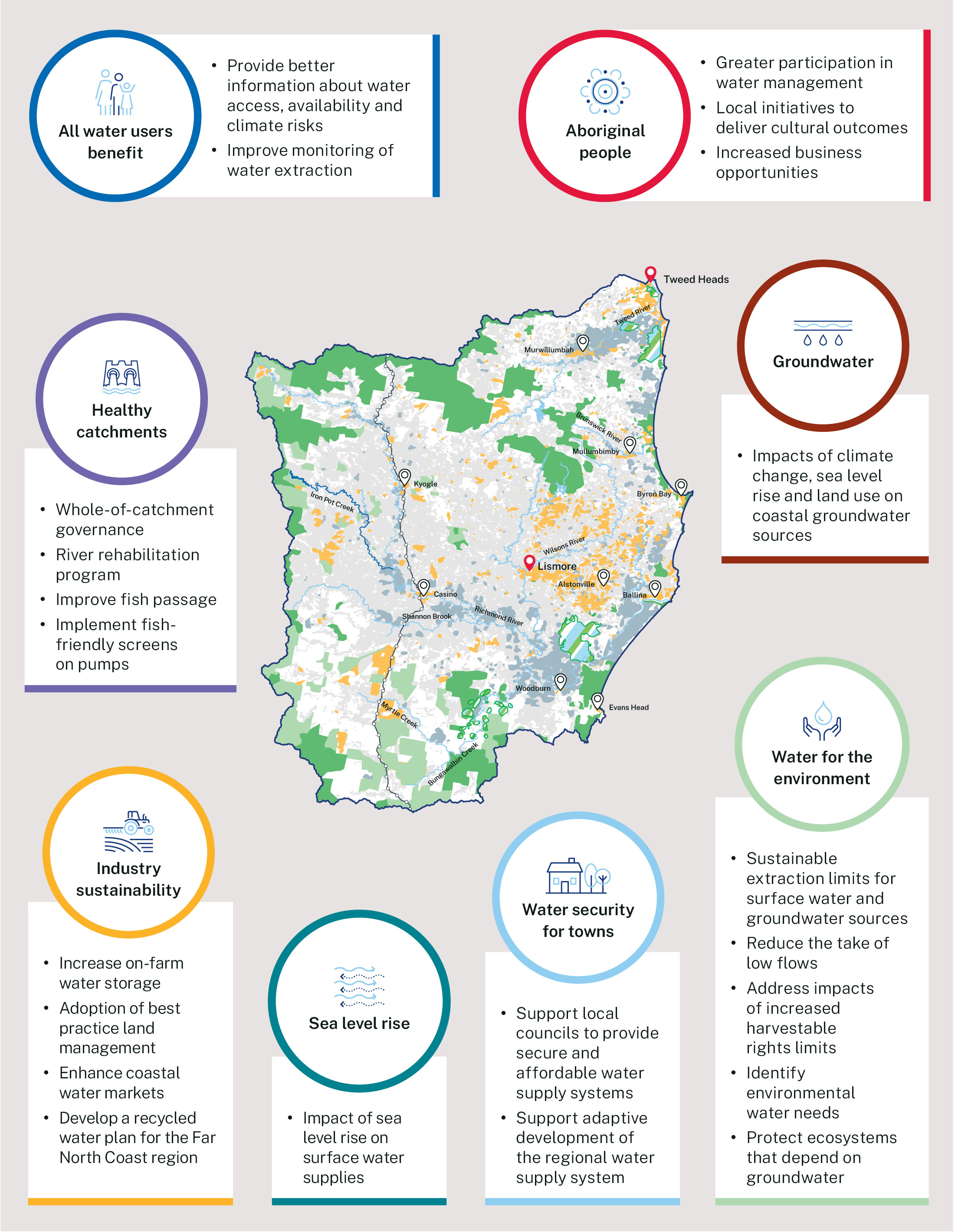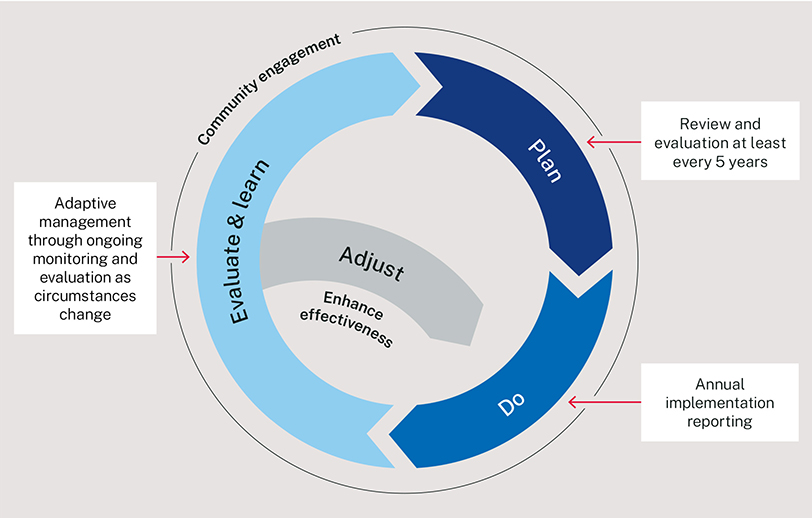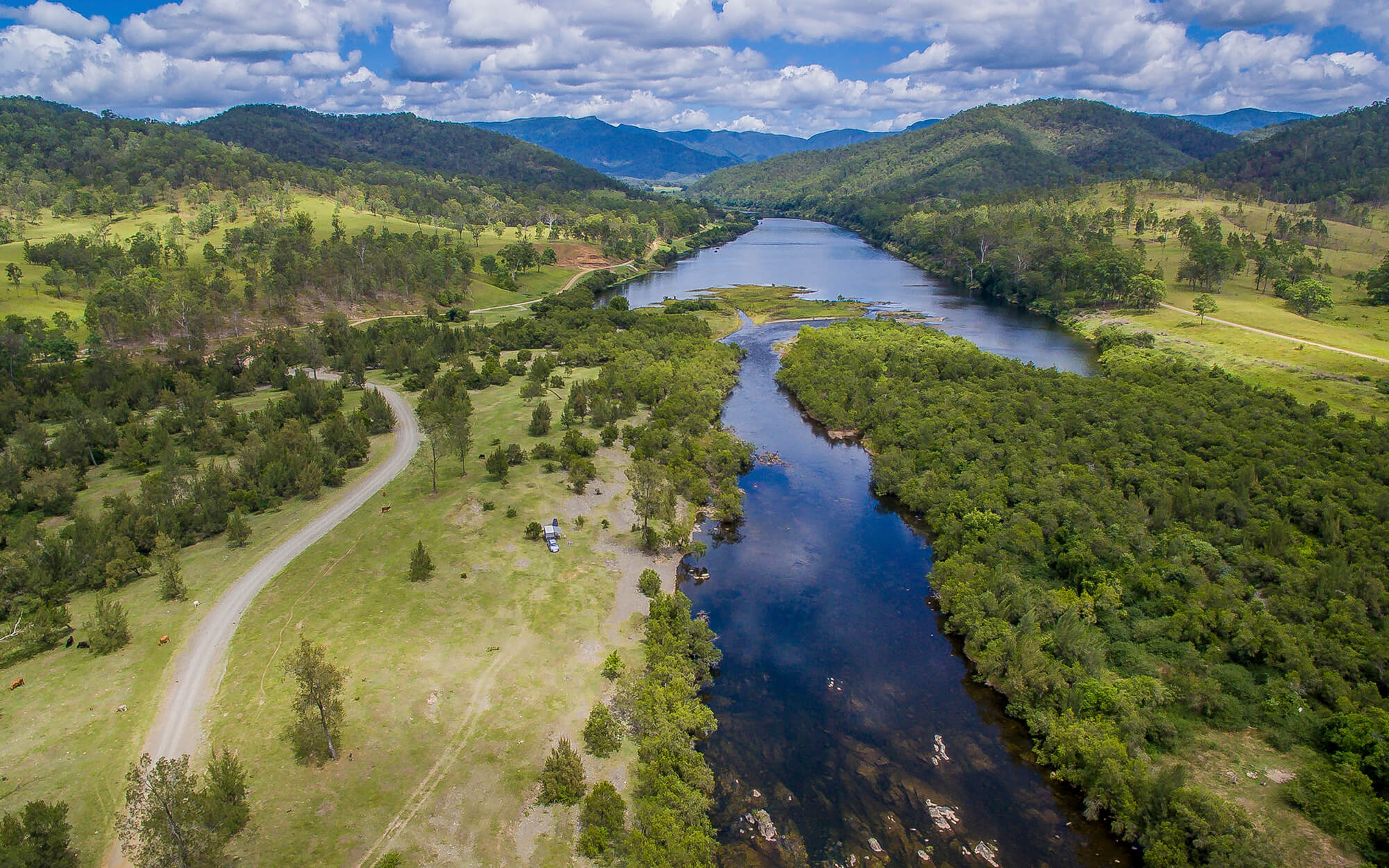The Far North Coast Regional Water Strategy and how it will be delivered is set out in the following strategy and implementation plan documents:
About the Strategy
Secure, reliable and resilient water sources are critical to regional communities in NSW. The best and latest climate evidence, along with a wide range of tools and solutions, has been used to chart a progressive journey for our water needs for the next 20 years and beyond.
We have prioritised 25 actions that can help to improve the Far North Coast’s readiness to adapt to a more variable climate.

How the strategy was developed
To develop this strategy, the NSW Government undertook significant research, analysis and consultation with industry, communities, and water managers. The department sought input for the development of the strategy through 2 public exhibition periods, as well as a range of targeted engagements, and an independent review by the CSIRO.
Document library and past engagement:
Monitoring and reporting
The strategy is designed to respond to changing circumstances. We will undertake a formal review of the strategy at least every 5 years or in response to significant changing conditions and government priorities.
Each year, we will report on our progress in implementing the strategy actions. This will provide transparency to the community, and allow us to show what we have achieved and what we will deliver in the future.

